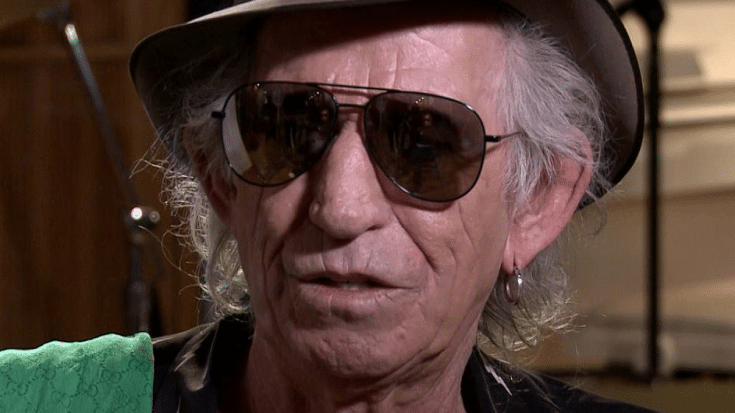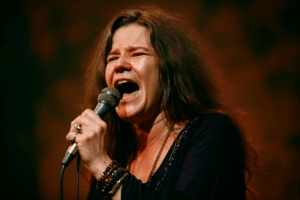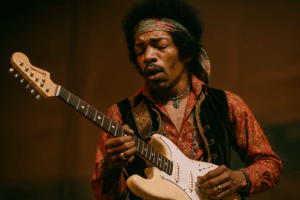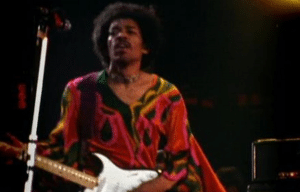Lucky Charms & Pre-Show Magic: Weird Beliefs of Famous Musicians

via Keith Richards / YouTube
Superstitions have always had a strange grip on performers. For many musicians, the stage can be a place of nerves, uncertainty, and adrenaline, so it’s no surprise that little rituals or charms become part of their routine. Whether it’s a food they always eat, a number they cling to, or a habit they refuse to break, these small traditions become anchors in an unpredictable world.
Some of these rituals might seem harmless or even charming, while others lean into the bizarre. From carefully timed meals to aversions triggered by everyday encounters, the spectrum of musician superstitions is as wide as it is fascinating. These practices aren’t always about talent or skill; instead, they reveal the deeply human need to feel a sense of control before stepping under the lights.
And it’s not just a modern quirk of rock stars and pop icons. History shows that even classical composers, revered for their genius, weren’t immune to superstition’s pull. From Victorian concert halls to massive stadiums, strange beliefs and lucky charms have shaped the way artists prepare to perform, leaving behind stories as memorable as the music itself.
Keith Richards Refuses to Perform Without Shepherd’s Pie
Many musicians have pre-show rituals they swear by, whether it’s Robert Plant’s unusual request for herbal tea and freshly ironed clothes or Chris Martin’s habit of brushing his teeth before taking the stage. For Keith Richards, though, a Rolling Stones concert required something far more specific: shepherd’s pie. His obsession with the dish reportedly began during the band’s 1989 Steel Wheels tour, when he demanded that management build a replica English pub backstage at every stop—and that pie was always on the menu.
Richards was so devoted to this ritual that he once delayed a Toronto concert after discovering some crew members had eaten from the pie before he had a chance. Furious, he refused to perform until a new one was baked, declaring that “nobody touches the shepherd’s pie until I’ve been in there.” This wasn’t just a snack; for Richards, it was a matter of principle.
Over time, the guitarist’s demand became a notorious part of Rolling Stones tour lore. It wasn’t just about food—it was about consistency, comfort, and control in the chaos of life on the road. For Richards, the pie became a talisman, a lucky charm in casserole form, reminding everyone that superstition can be as simple as protecting your crust.
Taylor Swift Believes in the Power of 13
For Taylor Swift, good fortune has always been tied to a single number: 13. Her fans first noticed her fixation during the Fearless era in 2009, when she began writing the number on her hand before performances. At the time, she explained that 13 had followed her throughout her life in meaningful ways. It wasn’t just an arbitrary superstition—it was something she truly believed helped guide her career.
Swift has pointed out that she was born on the 13th, turned 13 on a Friday the 13th, and that her debut album went gold in exactly 13 weeks. Even her first No. 1 hit, she noted, began with a 13-second intro. She’s said that whenever she’s seated in a 13th row or section during awards shows, good things seem to happen. What might look like coincidence to some has long felt like proof of fate to Swift.
With her Eras tour recently pulling in billions of dollars, it’s safe to say the ritual hasn’t hurt her. Whether painting 13 on her hand or weaving the number into her brand, Swift has shown that superstition can become part of a performer’s identity. For her, 13 isn’t unlucky—it’s magic.
https://twitter.com/theTSupdates/status/1972870871694889414
Missy Elliott Won’t Cross Paths With a Black Cat
Missy Elliott’s career is built on bold creativity, from her inventive music videos to her genre-pushing sound. But even someone as fearless as Elliott admits to being stopped cold by an age-old superstition. In interviews, she’s revealed that if she sees a black cat crossing her path, she’ll turn around and go the other way—even if it means being late for an important event.
Her avoidance of black cats connects her to one of the oldest superstitions in history. Dating back to the 13th century, when Pope Gregory IX denounced black cats as satanic, the animals became linked to witchcraft and bad luck. The belief that a black cat could curse you by crossing your path still lingers centuries later, and Elliott is far from the only one who takes it seriously.
What makes her superstition stand out is how strongly she acts on it. Many people might laugh off seeing a cat in the street, but Elliott has admitted that she’ll cancel plans, even a trip to the airport, if it happens. It’s a reminder that no matter how successful or powerful a musician becomes, superstition can still hold sway over the decisions they make.
https://twitter.com/blkgirlculture/status/1086353158035701761
Gustav Mahler Tried to Outsmart the “Curse of the Ninth”
Not all musician superstitions are modern quirks—some go back centuries. Gustav Mahler, the 19th-century Austrian composer and conductor, was one of the most acclaimed musicians of his time, yet he lived with a chilling fear. He believed in the “Curse of the Ninth,” a superstition that claimed no great composer could survive writing more than nine symphonies.
The legend began with Beethoven, who died shortly after completing his Ninth Symphony, and was reinforced by Franz Schubert and Anton Bruckner, who also died after their ninth works. Mahler, terrified of sharing the same fate, tried to cheat the curse. After completing his Eighth Symphony, he wrote Das Lied von der Erde but deliberately avoided calling it a symphony, hoping the technicality would keep him safe.
Unfortunately, the strategy didn’t work. Mahler went on to compose a Ninth Symphony but died in 1911 before finishing his Tenth. His attempt to outwit fate only added to the myth, leaving his legacy entwined with superstition. It shows that even the most brilliant and rational minds in music can be haunted by irrational fears, proving that belief in luck and curses has always been part of the artistic world.











